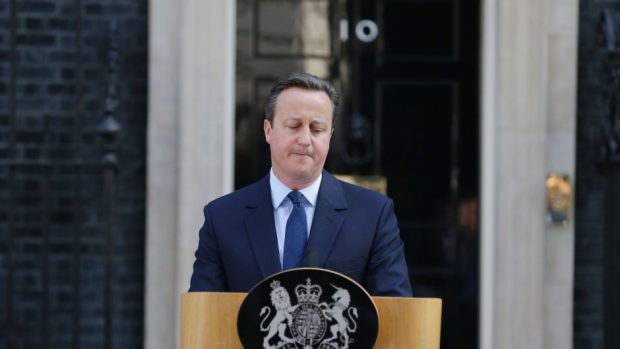Critics of David Cameron’s decision to hold a referendum on the UK’s membership of the European Union say he need not have called one at all.
They claim his main if not sole purpose in doing so was to appease the increasingly vocal eurosceptic wing of the Tory party.
But the divisive campaign quickly turned into a full-scale blue-on-blue war with exchanges which became more bitter and personal by the day.
The rows dominated the run-up to the poll to the extent they became the principal focus.
Then overnight, it did not go to the prime minister’s plan and it was soon clear to many he had miscalculated.
Within the course of a few hours, an internal squabble suddenly became a world crisis.
June 23, 2016 could mark the beginning of the end for the EU, although leaders of the other 27 member states pledged to continue to work together in the immediate aftermath of the Brexit vote.
With Nicola Sturgeon telling voters a second independence referendum was “highly likely”, it could also provoke the break-up of the UK.
In short – a complete shake-up of the British and European political landscape as we know it.
Leaving aside the potential longer-term repercussions, there are also pressing issues to be tackled immediately, not least the economic impact of the decision.
Sterling suffered one of its biggest plunges in the overnight markets, hitting lows last seen in 1985 and losing more than 10% against the US dollar.
And the London market plummeted by more than 400 points after Mr Cameron announced he would resign by October.
It pulled back later in the day, but only after Bank of England Governor Mark Carney pledged to intervene to shore-up the situation with £250billion of support.
European markets also fell, with many remaining heavily in the red yesterday morning.
On top of that, ratings agency Standard and Poor’s warned Britain could lose its AAA credit score as a result of the vote.
Negative reactions poured in from across Europe and further afield with German chancellor Angela Merkel expressing “great regret” at the result and French president Francois Hollande saying he was “sad” to see Britain sever relations.
The pair and others will hold urgent talks in Berlin on Monday before a scheduled European Council summit in Brussels.
Newsrooms around the world were left stunned by the referendum result.
The fall-out led almost every major publication throughout the day, with German tabloid Bild declaring it a “Black day for Europe”.
The Washington Post said British voters had “defied their leaders and international allies by cutting ties” with the EU and had “unleashed a new independence quest by Scotland”.
So, what does all this mean for whoever fills Mr Cameron’s shoes as leader and prime minister?
Yes, he or she faces the daunting task of bringing both the party and more significantly the country back together.
But it will also fall on him or her to manage the global repercussions of Brexit and find the UK’s new place in the world.
